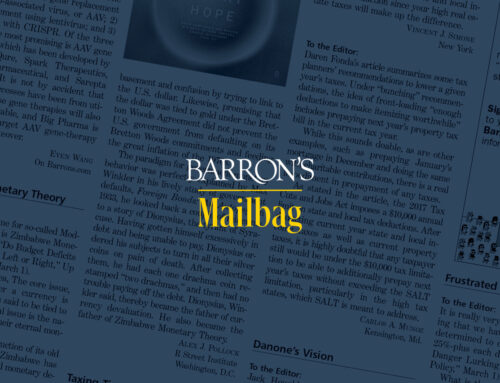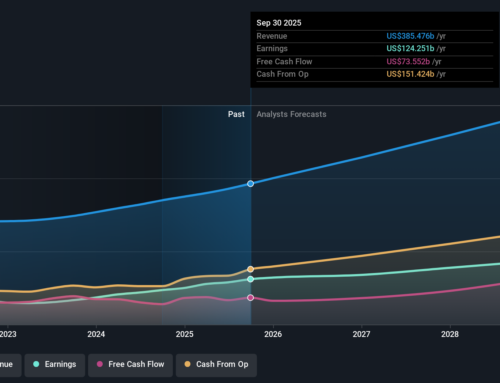Scaling Opportunity In Finance: Inclusive Pathways To Impact Investing
May 19, 2025
Through a new partnership with World Education Services, the Sorenson Impact Institute aims to expand the impact investing pipeline by increasing access to an apprenticeship program that connects students with real-world venture capital experience.
As the impact investing sector continues to grow, so does the opportunity to expand access to careers in the field. The next generation of impact leaders, shaped by their education and lived experience, will heavily influence where capital flows.
To nurture a broader and more expansive talent pipeline for the impact investing sector, the Sorenson Impact Institute is partnering with World Education Services (WES) to expand access to its Impact Investing Apprenticeship Program. The partnership will support the Institute’s Unlocking Impact Initiative — a hands-on, student-driven apprenticeship that provides training in venture capital and impact investing to students from all backgrounds.
With support from WES — a nonprofit social enterprise that supports the educational, economic, and social inclusion of immigrants, refugees, and international students in the U.S. and Canada — six students from Miami Dade College and Bowie State University joined the 15 student interns from the University of Utah in the 2024-2025 apprenticeship program. Since 2013, more than 500 student interns have helped to deploy upwards of $62 million into early-stage companies and funds in health equity, climate resilience, workforce development, and financial inclusion. Student interns also have networking opportunities as they make professional and personal connections through the program.
Nomzana Augustin, Associate Director of Partnerships and Strategic Initiatives at the WES Mariam Assefa Fund, said the organization’s new partnership with the Institute reflects their shared commitment to impact investing as a tool to ensure capital reaches underfunded communities. “Both WES and Sorensen seek to see new, diverse leaders in finance and investing, which can help shift how capital flows,” she said. “Sorensen’s program has proven impact in creating opportunities for investment leaders, better reflecting the talent that exists. WES is funding the expansion of this program to reach more students who might otherwise be excluded from this kind of opportunity.”
In her role at WES, Augustin drives the fund’s external partnerships, strategy, and initiatives with funders and other ecosystem partners to advance economic mobility for all.
Shannon Meyer, Operations & Student Engagement Associate at the Institute, said WES is an exceptional partner that helps with guidance on updates, recruiting, and other elements of the apprenticeship program. “They have valuable insights on how to make the recruiting process more accessible to historically underrepresented students so that talented students from all backgrounds can take part in our program.”
In this Q&A, Augustin and Meyer discuss the apprenticeship program, its place in their organizational strategies, and their hopes for its influence on the impact investing sector.
How does the apprenticeship program partnership align with and address WES values and strategy, including economic opportunity and mobility, for the impact investing ecosystem?
Nomzana Augustin: As a nonprofit social enterprise dedicated to advancing economic opportunity for all, WES recognizes the importance of empowering new leaders and creating career pathways for individuals with lived experience. Through this partnership, we’re excited to see Sorensen continue to nurture young talent from underrepresented backgrounds, opening doors to careers in impact investing and venture capital.
By supporting future investing leaders, we can help create a more representative impact investing ecosystem and, in turn, more inclusive economies. Developing representative leadership in finance will help bring impact investing closer to overlooked communities.
Shannon Meyer: WES’s mission to create pathways to economic opportunity and mobility for underserved communities complements one of the main objectives of our student program: to equip students with the skills and experience necessary to secure competitive jobs or internships following the program. The program immerses students in experiential learning opportunities, equipping them with the tools and experience needed to be successful in the workforce. Additionally, it provides opportunities for each student to network and build social capital with staff, founders, and fellow students across the country. These types of opportunities help build a foundational framework that creates a pipeline of future investment professionals that better reflects the talent that exists.
What opportunities does this partnership offer students that might not exist otherwise?
SM: Our partnership with WES has allowed us to make the impact investing student program a paid internship for the first time. This helps us break down one of the barriers for students who might otherwise be unable to accept an opportunity like this due to needing to hold a paying job to support themselves or their families. It also ensures that students can take advantage of the learning opportunities provided by this program regardless of their economic status. This partnership has also enabled us to engage the student cohort in more travel opportunities, like attending conferences or pitch events.
NA: The apprenticeship program goes beyond the impact investing field, offering a unique career launchpad. Importantly, the paid program enables students to build social capital for long-term career guidance and mentorship from peers and alumni — for example, at events like SOCAP and with the Morgan Stanley Inclusive Ventures Lab. Students who participate in the program gain new skills that offer opportunities to work in finance, consulting, investment banking, and social impact. Compensation for many of these jobs is generous and can place students well above the national average starting salary.
This kind of experience is especially beneficial to students from underrepresented backgrounds who can transform their lives and communities with the resources and opportunities provided through the program.
How does the partnership help advance workforce development goals shared by WES and Sorenson? How might it evolve in the future?
SM: This partnership helps advance our shared workforce development goals by providing students with experiential learning opportunities from day one. Students are tasked with projects and conducting due diligence that ultimately leads to the deal team choosing whether to invest in an early-stage company or not. Allowing students to have hands-on experience with real investment decisions — and real money — before they even graduate college is a massive opportunity, especially for those interested in pursuing careers in impact investing or venture capital. As we look into the future, we’re excited about the opportunity to build out our employer network and career pathing for future students with support from WES. This will help drive forward a strong, talented pipeline of future leaders in the industry.
NA: Students from various backgrounds build skills, social capital, and their career pathways through this program, which is unique in the impact investing field. We aspire to see more institutions and employers who are open to hiring professionals from underrepresented backgrounds. At WES, we believe that unlocking new talent is not a pipeline problem, but that there needs to be interest and commitment to an inclusive workforce, shifting employer practices. Hopefully, this program can inspire others to open doors to career opportunities for emerging leaders.
Can you share a bit about why WES emphasizes participatory grantmaking practices and investing, and how this partnership incorporates these elements?
NA: When WES launched the WES Mariam Assefa Fund in 2019, it was with WES’s commitment to advancing participatory grantmaking and investing. This means that decision-making power for funding is given to the communities who know best about the issues affecting them.
For example, in 2022, we partnered with Common Future to launch a participatory investing action lab with 16 leaders from eight institutions. During a yearlong initiative, we tested participatory strategies through a collaborative fund and compiled our learnings into a toolkit for other institutions looking to do this work. Investment decisions are rarely made by the communities the capital aims to serve, and participatory investing seeks to change this, leading to more informed decisions.
Through our partnership with Sorensen, we hope to share ideas on how to ensure that students are involved in the design of the program as well as investment decisions. The students can bring fresh perspectives and new knowledge on the solutions that could be impactful for communities.
For example, if a Bowie State student from a low-income household joins the program, they can share their observations on housing and financial inclusion, informing the decision-making process of an investment in their community or a community similar to theirs, based on their lived experience.
SM: WES’s approach ensures that programs are designed to meet the actual needs of the communities they serve. Within our program, students are actively involved in program design, bringing fresh perspectives and constructive feedback to me each semester. Our staff team is constantly learning from each other and, more importantly, from our students. We leverage the insights and experiences of our students to ensure that we’re continuously adapting our program to be the best it can be for the next generation.
Why are partnerships like this especially important now in the impact investing ecosystem?
SM: Partnerships like this are especially important because they bring together diverse expertise and knowledge to help address some of the challenges we see in today’s world. The impact investing ecosystem is constantly evolving, and partnerships like this can drive innovation to help build a more comprehensive and resilient economy for generations to come.
NA: It’s important that our economies and communities better reflect the country we live in. The impact investing ecosystem will benefit from including leaders of different backgrounds who can help determine where funds go, ensuring that historically neglected communities are no longer overlooked.
WES looks forward to telling the stories of the student participants and how the program impacts their careers, lives, and communities. We encourage interested students to apply to the apprenticeship program, and for people to spread the word to promising candidates. Further, we hope this initiative can inspire similar programs and opportunities for more underrepresented talent to gain experience and enter careers in impact investing and venture capital.
Search
RECENT PRESS RELEASES
Related Post




